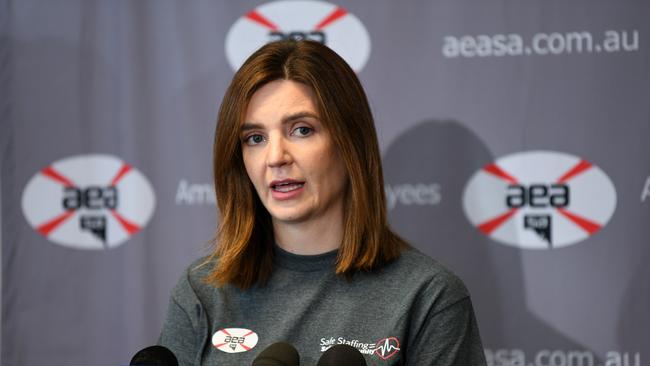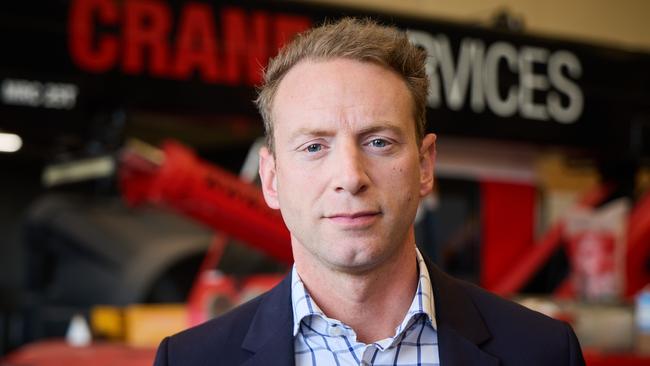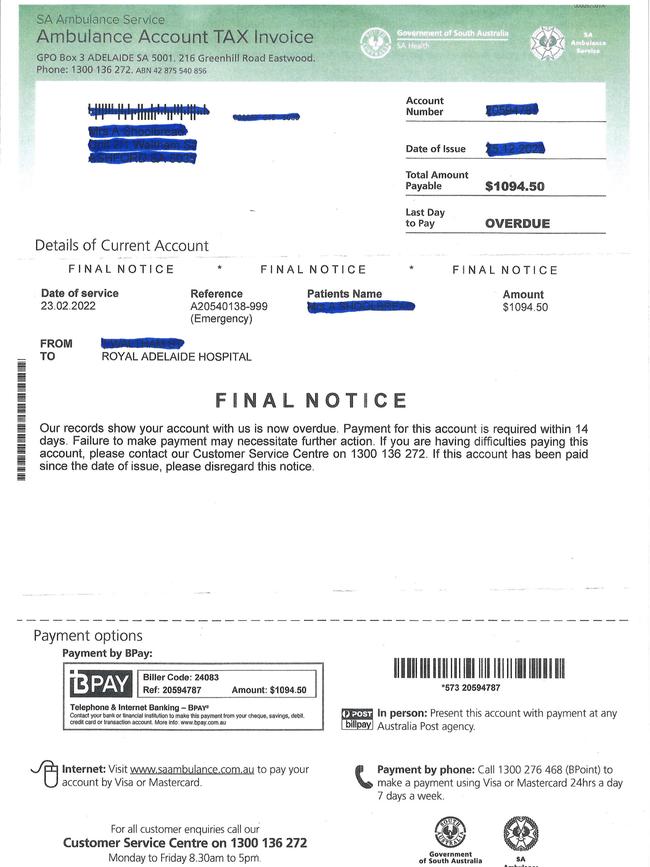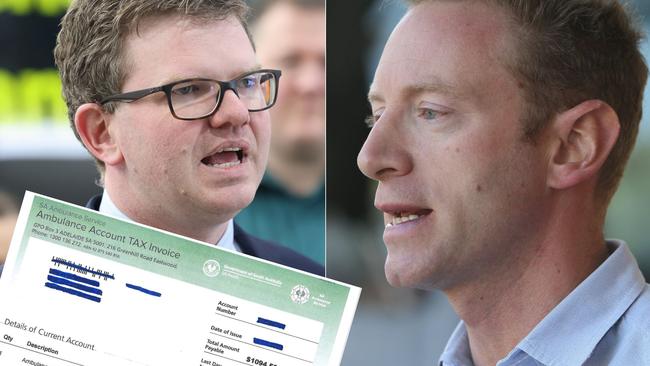Ambulance Union claims it was unaware back-billing was possible, as Labor and Libs’ fight heats up
The Ambulance Service says those yet to receive a bill should not relax as they have six years to send invoices, warning they won’t be going easy on anyone.

SA News
Don't miss out on the headlines from SA News. Followed categories will be added to My News.
Ambulance patients who thought they had a free ride during union industrial action prior to the state election face debt collectors if they fail to pay bills now going out almost a year after they were transported.
Those yet to receive a bill should not relax — SA Ambulance Service (SAAS) chief executive Rob Elliott has confirmed SAAS has six years to send invoices, so while $2m in bills have now been sent to unsuspecting patients another $2m may trickle out until March 2028.
From February 4 to March 3 last year the Ambulance Employees Association refused to do the paperwork to bill people they transported, costing SAAS $4m.
SAAS runs a partial user-pay service and is now clawing back some of the money, using different data matching sources to identify patients.
A woman whose father received a bill complained to SAAS about it being months late and was told in a letter from Mr Elliott: “As per the Limitation of Actions Act 1939 SAAS has six years to issue an invoice for services provided, however we endeavour to do so as soon as possible.”
As revelation of the clawback unfolds, the Opposition has ridiculed the ambulance union state secretary Leah Watkins’ claim the union had no knowledge SAAS could use other SA Health data to chase bills.

SAAS has told The Advertiser it routinely uses other data matching methods in cases such as a patient being unconscious and having no family or friend on hand for the paperwork.
Opposition leader David Speirs blasted the government and the union over the issue.
“This situation is spiralling out of control for Peter Malinauskas to the point where this Labor government is going to send debt collectors to bang on the doors of sick people who called an ambulance when they had no other choice,” he said.
“It is disgraceful that South Australians will suffer financially because of some dirty deal Peter Malinauskas concocted with his union mates to become Premier.
“No one believes the ambulance union wasn’t aware patients could be retrospectively charged. The industrial action was a clear mechanism – used by Peter Malinauskas – to cause maximum political damage. Now that shady move is coming back to bite Labor and suddenly, the union is pretending it’s none the wiser.”
Mr Speirs noted that since Labor was elected “ramping is the worst in state history and the ambulance union has pulled off a Houdini while ‘Ash the Ambo’ has vanished from our TV screens and social media.”
Health Minister Chris says people in financial stress can go on payments plans — but the bills will not be waived. The government is blaming the previous government.
An unemployed woman who The Advertiser reported was shocked to receive a $1094.50 bill has received a final demand with the veiled warning “failure to make payment may necessitate further action”.
“I was employed when I needed the ambulance but am now unemployed and getting a bill for more than $1000 when I was under the impression they were not sending bills has been a big shock,” the woman said.
“I was checking my options then got this final notice with the warning about them taking further action if I did not pay.”

Members of the Ambulance Employees Association did not know their patients would later foot the bill for ambulance rides during industrial action, the union has said.
Almost a year after some patients were transported, invoices for more than $2m have been sent to thousands of people caught in the dispute.
“We had no knowledge that the ambulance service had the capacity to do that,” Ms Watkins said on ABC Radio Adelaide on Monday.
“It was always our understanding that if the billing information wasn’t filled out, there was no way of that being tracked back.”
She condemned the back-billing and said the money should not be recovered unless it was a requirement by law.

“I don’t think the ambulances should be spending time and effort in chasing these debts,” Ms Watkins said.
“However, if there is a legislative obligation for them to recover it, I can understand why they have to go to some lengths.”
Health Minister Chris Picton backed Ms Watkins’ claims, saying it was likely ambulance officers were unaware the rides could be back-billed.
“I suspect they probably weren’t aware the extent of which SA Ambulance is able to data match with other sources and able to raise those bills without those case cards,” Mr Picton said.
“The ambulance service unfortunately has a lot of delays with all its billings across the board, which we are looking to address.”
Mr Picton blamed the previous Liberal government for keeping patients in the dark over the delayed bills.
“What the previous government would have known, and what SA ambulance was making clear to people who contacted them at the time, was if they could use other data matching then they would fulfil their legal obligations (to bill patients),” he said.

“I think it’s unfortunate that the previous government weren’t clear with people about that at the time.”
But in a tete-a-tete over the issue, opposition leader David Speirs hit back at Mr Picton, instead blaming the bills on “complicit activity between the union and Labor government”.
“I think it’s a bit rich of Chris Picton to blame a government that left office almost a year ago,” Mr Spiers said.
“There was a lot of moving parts around that time when it came to that industrial action and I’m not sure if a decision would’ve been made by our government one way or the other.”
“South Australians have been duped and now they’ve been duped even further because they’re getting invoices for industrial action.”




